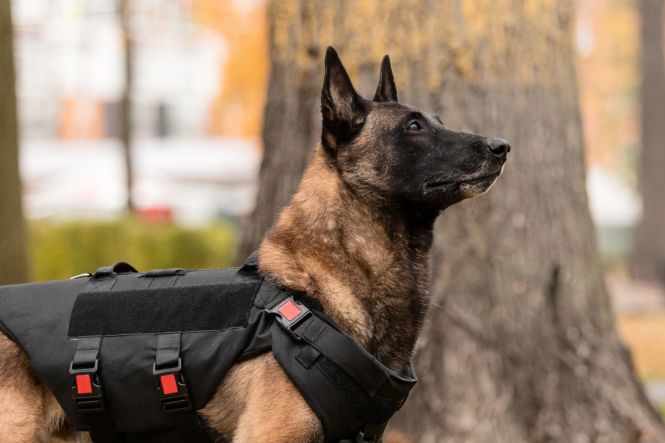As a loving dog owner, you want to ensure that your furry companion leads a healthy and comfortable life. Unfortunately, just like humans, dogs can experience various health issues, including spinal problems. Fortunately, back braces can provide effective support and relief for certain conditions. In this article, we will explore common conditions in dogs that may benefit from a dog back brace. Understanding these conditions and the potential benefits of back braces can help you make informed decisions about your pet’s well-being.
Connect with a verified veterinarian in minutes. Licensed vets are available 24/7 to answer your questions. No need to worry about your furry family member.

1. Intervertebral Disc Disease (IVDD)
Intervertebral Disc Disease, commonly known as IVDD, is a common spinal condition in dogs. It occurs when the cushion-like discs between the vertebrae become damaged or degenerate, causing pain, nerve compression, and mobility issues. Back braces can offer stability and support to the affected area, reducing pressure on the discs and facilitating healing. By limiting movement and providing gentle compression, these braces can alleviate pain, minimize further damage, and aid in the recovery process for dogs with IVDD.
2. Degenerative Myelopathy
Degenerative Myelopathy is a progressive spinal condition that primarily affects certain dog breeds, such as German Shepherds and Boxers. It involves the degeneration of the spinal cord, leading to hind limb weakness, loss of coordination, and mobility difficulties. Back braces designed specifically for hind limb support can help dogs with degenerative myelopathy by providing stability and improving balance. These braces can reduce the strain on the spine and assist dogs in maintaining an upright posture, allowing them to move with greater ease and confidence.

Review symptoms, medications & behavior to keep your pets healthy with a Vet Online in just minutes.
Ask a Vet Live Now3. Post-Surgical Support
After undergoing spinal surgery or other related procedures, dogs may require additional support during the recovery period. Back braces can aid in the healing process by providing support and immobilization to the surgical site. They help prevent excessive movement, which can be detrimental to the healing process. Back braces can also offer a sense of comfort and security to dogs, reducing anxiety and promoting a faster recovery. However, it is essential to consult with your veterinarian to determine the appropriate type and duration of brace needed for your dog’s specific condition and surgical procedure.
4. Arthritis and Chronic Back Pain
Arthritis and chronic back pain are common issues among aging dogs. These conditions can cause discomfort, reduced mobility, and a decreased quality of life. Back braces designed to provide gentle compression and warmth to the affected area can help alleviate pain and inflammation associated with arthritis and chronic back pain. By offering support and stability, these braces can enhance your dog’s overall mobility and comfort, allowing them to enjoy a more active and fulfilling life.
Conclusion
Back braces can be a valuable tool in managing and improving the quality of life for dogs with various spinal conditions. Whether your dog suffers from IVDD, degenerative myelopathy, requires post-surgical support, or struggles with arthritis, a well-fitted and appropriate back brace may offer significant benefits. Remember to consult with your veterinarian before using a back brace and ensure that you choose a brace designed specifically for your dog’s condition and needs.
Connect with a verified veterinarian in minutes. Licensed vets are available 24/7 to answer your questions. No need to worry about your furry family member.

Tom
Tom has always loved to write since he was little - he wanted to be either a writer or a veterinary doctor, but he ended up being a professional writer while most of his works are based on animals. He was born in San Francisco but later moved to Texas to continue his job as a writer. He graduated from the University of San Francisco where he studied biotechnology. He is happily married and a soon to be father!
Review symptoms, medications & behavior to keep your pets healthy with a Vet Online in just minutes.
Ask a Vet Live Now
